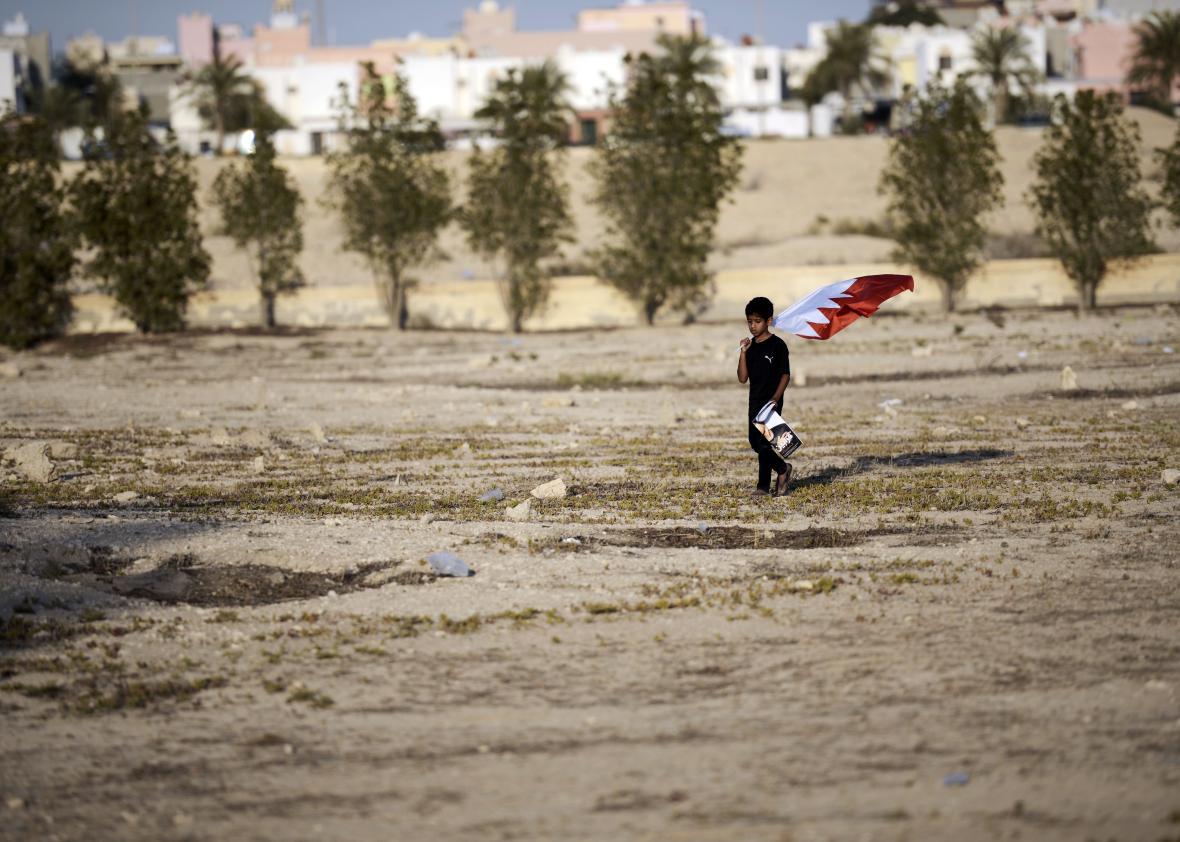In another sign that the Trump years are going to be a great time to be an American defense contractor or Sunni Gulf monarchy but a bad time to be a Middle Eastern human rights activist, the administration announced that it plans to approve a multibillion sale of F-16s to Bahrain. The Obama administration had withdrawn approval of that deal last fall over human rights concerns amid a crackdown on dissent in the island country, that included the banning of its largest opposition party and the jailing of a prominent human rights activist. Trump has now given it the go-ahead.
Bahrain is home to the U.S. Navy’s 5th fleet and is a participant in the Saudi-led air campaign in Yemen. The reversal on the F-16 sale comes as the Trump administration has signaled it will increase support for the Yemen campaign, ostensibly aimed at curbing Iranian aggression. Bahrain is a predominantly Shiite country ruled by a Saudi-backed Sunni monarchy, which frequently blames unrest on Iranian meddling. In 2011, Saudi troops intervened in the country to put down predominantly Shiite protests linked to the Arab Spring. Likely thanks to Bahrain’s strategic importance to the U.S. military, Obama administration criticism of the country was more muted than in other cases, but the F-16 deal hold-up was an exception.
President Trump has spoken approvingly of a number of autocratic leaders for using harsh tactics on opponents, and Secretary of State Rex Tillerson has already made it pretty clear that human rights and democracy are not going to be major priorities for his department, so moves like this aren’t a huge surprise. One aspect of this that seems almost too fitting: the sale was held-up in part because of Bahrain’s jailing of activist Nabeel Rajab, who was accused of spreading “false news” after publishing a letter in the New York Times last September.
